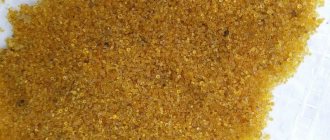Cold in the stomach
The feeling of cold in the stomach occurs due to the development of an inflammatory process in the stomach. Coldness in the stomach area is a manifestation of gastritis symptoms. With the development of the inflammatory process in the stomach, the functionality of the glands of the organ's mucous membrane is disrupted. They are responsible for the secretion of gastric juice and the level of acidity. Due to changes in acidity concentration, a peculiar chill is felt in the stomach area.
Coldness in the stomach is a manifestation of gastritis symptoms
Coldness in the stomach area can occur for many reasons. After the patient complains of a chill in the stomach area, the primary diagnosis is aimed at detecting the inflammatory process in the stomach, the functionality of the glands of the organ’s mucous membrane, the level of acidity of gastric juice, and individual indicators of the patient’s health status.
Possible diagnostic methods may vary depending on the nature of the pain, the pricing policy of the medical center and the required speed of data acquisition. During diagnosis, the condition of the mucous membranes of the organ, their structure, and possible deformations are taken into account. Some diagnostic methods involve obtaining a fragment of an internal organ for further laboratory testing.
Diagnostics
Despite the fact that gastritis is one of the most common diseases of the modern world, scientific research regarding its formation, main manifestations, and their sources is still ongoing. After the patient complains of a chill in the stomach area, the primary diagnosis is aimed at detecting the inflammatory process in the stomach, the functionality of the glands of the organ’s mucous membrane, the level of acidity of gastric juice, and individual indicators of the patient’s health status. Possible diagnostic methods may vary depending on the nature of the pain, the pricing policy of the medical center and the required speed of obtaining data:
- Endoscopy. An endoscopic examination involves the use of a special medical device – an endoscope. With its help, the specialist examines the internal organs and analyzes the general degree of damage to the body.
- Laboratory diagnostics. The diagnosis can be made after the patient has taken blood, urine, and stool tests. These tests can detect gastritis and substantiate the feeling of cold in the internal organ.
- Ultrasound examination of the abdominal cavity. Ultrasound is one of the most effective and fastest ways to diagnose inflammatory processes inside the body.
During diagnosis, the condition of the mucous membranes of the organ, their structure, and possible deformations are taken into account. Some diagnostic methods involve obtaining a fragment of an internal organ for further laboratory testing.
Feeling of cold in the stomach
Gastritis is a fairly common reason for visiting gastroenterologists. It may cause a feeling of coldness in the stomach as one of the symptoms of some forms. The main function of the stomach, which is to digest food, is carried out largely through gastric juice, which contains hydrochloric acid as the secretion of its glands.
When these glands malfunction, the acid concentration changes, which directly affects the level of acidity in the stomach. In case of increased acidity of the juice in the stomach, a feeling of cold may occur. It can appear after eating fruits or cold, almost icy water. Liquids and foods do not enter the stomach immediately; they stop as they approach it, and then abruptly fall into the stomach cavity.
Also, a feeling of cold in the stomach can be accompanied by a burning sensation in the chest, sometimes directly in the stomach, a feeling of heat, a headache of varying severity, and a state of severe weakness.
To treat high acidity levels with such symptoms, the use of homeopathic remedies such as Elaps, Polygonum or Acidum sulfuricum is recommended.
The reasons for the appearance of cold in the stomach can be different, so if you have any complaints, discomfort or pain, you should consult a doctor for a diagnostic test. The results of the examination will show what disorders exist, and the doctor, based on them, will prescribe proper treatment and give recommendations on what diet to follow.
Coldness in the stomach area
The reasons for the appearance of cold in the stomach can be different.
Why does a feeling of cold occur in the stomach? Gastritis is considered one of the main causes of the pathological process. This type of disease is characterized by impaired production of gastric juice. To make an accurate diagnosis, it is necessary to undergo a thorough examination.
Using endoscopic techniques, you can examine the condition of the mucous membrane of the esophagus and stomach. The patient is recommended to donate blood, urine and feces for analysis. Inflammation can be detected in the blood, and particles of hidden blood can be found in the stool. Ultrasound diagnostics of the abdominal and pelvic organs can detect the site of inflammation, tumors and cysts.
Based on the results obtained, an accurate diagnosis is made. Treatment involves an integrated approach to solving the problem. It consists of taking medications, following a strict diet and following some recommendations. Antibiotics, antacids, antispasmodics and anti-inflammatory drugs are prescribed without fail. It is not possible to completely cure gastritis, but it is possible to maintain a normal condition.
Tibetan medicine separately distinguishes “cold” diseases of the stomach, which, on the contrary, are associated with a decrease in the content of hydrochloric acid in gastric juice and, as a consequence, a violation of the digestive function of the stomach. In this case, there is poor health, chills, and heaviness after eating. Herbal medicines are prescribed as treatment to help normalize the functioning of the stomach.
Cold for stomach pain
The reasons when a patient has a feeling that the stomach is cold are different, and only a complete diagnosis can establish them. In this case, an unpleasant odor from the mouth and nausea often appear. A person has a stomach ache and no appetite. Associated symptoms depend on the individual clinical picture of the patient.
Associated symptoms of feeling cold in the stomach:
- burning, discomfort in the chest area;
- a sharp increase in body temperature and, accordingly, an increase in the intensity of sweating;
- headache (of varying degrees of severity);
- general deterioration of the body, a sharp loss of strength;
- convulsions of varying severity. Gradual shift of cramps to the feet;
- increased sensitivity of internal organs;
- constipation/watery discharge;
- a strong feeling of hunger or, conversely, nausea at the sight of warm foods (there is a desire to eat only cold food);
- dehydration of the body;
- nausea/vomiting;
- melancholic psycho-emotional state, constant excitement, sensitivity.
The basis of therapy is not to prevent the symptom of a cold stomach, but to treat the disease of the digestive system that provoked it. In chronic and advanced situations, surgery is prescribed. But in most cases it is recommended to treat with medication and diet.
The effectiveness and duration of the technique depend on the stage at which therapy begins. To remove the cold, medications containing salt and pepper are prescribed, which get rid of accumulated bile. Their taste matches the ingredients, it is spicy and salty. Self-prescription of drugs is unacceptable. The type of medication, its dosage and course of use are determined individually by the treating doctor.
Therapy
Normalization of sleep is one of the methods of therapy.
Therapy is determined after a comprehensive diagnosis of the body and diagnosis by a qualified medical specialist. Recommended therapy varies depending on the root cause of discomfort in the stomach area, the patient’s individual characteristics, the level of gastric acidity, and other things. General therapeutic recommendations:
- Eliminate the root cause of the disease - any factors that can provoke an exacerbation. This also applies to physical activity and changing your usual diet. Changes in regimen should be discussed with your doctor.
- Normalize your sleep schedule. When treating any disease, it is important to maintain the natural strength of the body. A person should get enough sleep and feel alert after waking up. Failure to comply with the regime, lack of sleep and, accordingly, energy, may worsen the current disease.
- Follow general dietary guidelines. Introduce healthy foods into your diet and exclude fatty carbohydrate foods (they can provoke increased production of gastric juice and disruptions in the functioning of the gastrointestinal tract). Please note that a special diet is formed based on diagnostics and existing body indicators. Some patients should not eat foods containing large amounts of acid; for others, on the contrary, such foods will help them heal faster.
- Switch to fractional meals. Eat small meals every few hours when you feel slightly hungry. The total number of servings should not exceed 7 per day. If possible, eat at the same time every day. This will help the body adapt to the new diet, speed up metabolism and facilitate the functioning of the gastrointestinal tract.
- Consume enough liquid (1.5-2 liters of water). It is recommended to consume the liquid at room temperature.
- Avoid drinking alcoholic beverages and tobacco products.
- Do not self-medicate. Take only those medications prescribed by your treating specialist.
- Pay attention to your own psycho-emotional state. Some patients require rehabilitation after such diseases. It is recommended to take medications that have a beneficial effect on the nervous system. Take vitamin supplements and biologically active complexes (as agreed with your doctor). They will help the body overcome the disease and recover as quickly as possible.
- Balance your physical activity (do not overexert your body). Get outdoors more often. A trip to the wellness center is recommended.
Why does my stomach feel cold?
Due to changes in the concentration of acidity in the stomach area, a kind of chill is felt.
With the development of the inflammatory process in the stomach, the functionality of the glands of the organ's mucous membrane is disrupted. They are responsible for the secretion of gastric juice and the level of acidity. Due to changes in acidity concentration, a peculiar chill is felt in the stomach area. Its manifestation is associated with the consumption of foods and liquids.
Coldness in the stomach can be felt due to the following pathologies:
- gastritis;
- gastrointestinal tract infections;
- disorders of mucosal acidity;
- ulcer; reflux; pancreatitis;
- duodenitis; colitis; enteritis;
- allergic reaction to products;
- liver failure;
- ailments of the cardiovascular and respiratory systems.
Self-medication and the use of traditional medicine are not allowed. The patient can harm his own body by aggravating the inflammatory process. High-quality medical therapy should be carried out on the basis of laboratory data after a thorough examination and consultation with the treating specialist. Coldness in the stomach area is a manifestation of gastritis symptoms.
Peculiarities
With the development of the inflammatory process in the stomach, the functionality of the glands of the organ's mucous membrane is disrupted. They are responsible for the secretion of gastric juice and the level of acidity. Due to changes in acidity concentration, a peculiar chill is felt in the stomach area. Its manifestation is associated with the consumption of foods and liquids. Accompanying symptoms:
- burning, discomfort in the chest area;
- a sharp increase in body temperature and, accordingly, an increase in the intensity of sweating;
- headache (of varying degrees of severity);
- general deterioration of the body, a sharp loss of strength;
- convulsions of varying severity. Gradual shift of cramps to the feet;
- increased sensitivity of internal organs;
- constipation/watery discharge;
- a strong feeling of hunger or, conversely, nausea at the sight of warm foods (there is a desire to eat only cold food);
- dehydration of the body;
- nausea/vomiting;
- melancholic psycho-emotional state, constant excitement, sensitivity.
It is recommended to go out into the fresh air or go to a well-ventilated area as soon as you feel a chill in the stomach area.
Self-medication and the use of traditional medicine are not allowed. The patient can harm his own body by aggravating the inflammatory process. High-quality medical therapy should be carried out on the basis of laboratory data after a thorough examination and consultation with the treating specialist.







